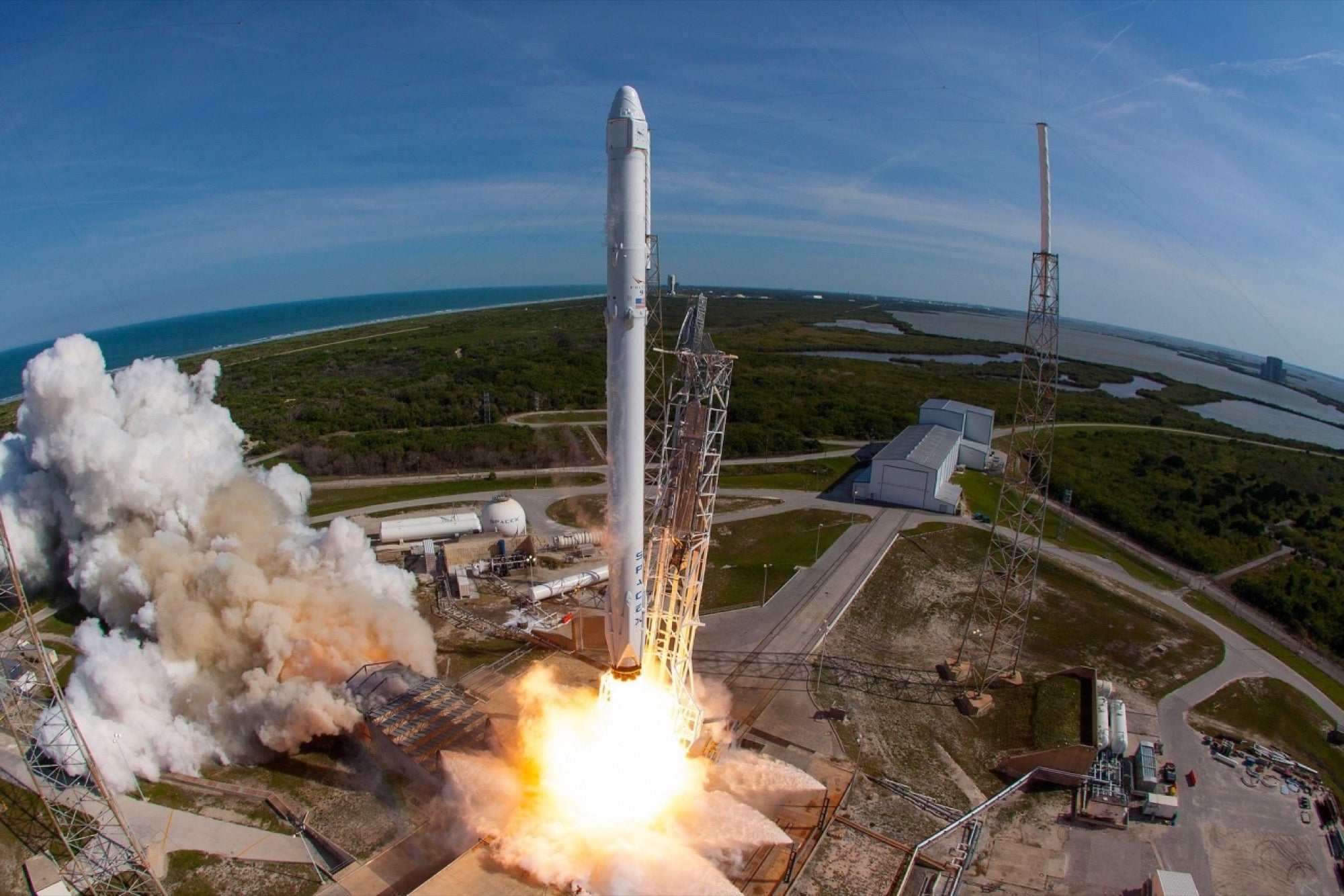SpaceX Breaks Boeing-Lockheed Monopoly on Military Space Launches The U.S. Air Force awarded Elon Musk's SpaceX an $83 million contract to launch a GPS satellite in 2018.
By Reuters
This story originally appeared on Reuters

The U.S. Air Force on Wednesday awarded billionaire Elon Musk's SpaceX an $83 million contract to launch a GPS satellite, breaking the monopoly that Lockheed Martin Corp. and Boeing Co. have held on military space launches for more than a decade.
The Global Positioning System satellite will be launched in May 2018 from Florida, Air Force officials said.
The fixed-price award is the military's first competitively sourced launch service contract in more than a decade. It ends the exclusive relationship between the military and United Launch Alliance, a partnership of Lockheed Martin and Boeing.
ULA did not compete for the GPS launch contract, citing accounting issues, implications of trade sanctions limiting imports of its rockets' Russian-made engines and, according to a former ULA vice president, SpaceX's cut-rate pricing.
"This GPS III Launch Services contract award achieves a balance between mission success, meeting operational needs, lowering launch costs, and reintroducing competition for National Security Space missions," Lieutenant General Samuel Greaves, who heads the Air Force's Space and Missile Systems Center, said in a statement.
Between now and 2018, the Air Force plans to solicit bids for contracts covering eight more satellite launches.
ULA did not immediately respond to a request for comment about bidding on future launch contracts.
The $82.7 million fixed-price contract awarded to Space Exploration Technologies, as the company is officially known, covers production of a Falcon 9 rocket, spacecraft integration, launch operations and spaceflight certification.
Musk, a billionaire entrepreneur who helped found Tesla Motors Inc. and PayPal Holdings Inc., started SpaceX in 2002 with the goal of slashing launch costs to make Mars travel affordable.
SpaceX also said on Wednesday it plans to send an unmanned Dragon spacecraft to Mars as early as 2018, a first step in achieving Musk's goal to fly people to another planet.
SpaceX holds more than $10 billion worth of launch service contracts for NASA and commercial customers. The company recently made spaceflight history by returning Falcon 9 rockets to landing pads on land and sea - a key step in Musk's ongoing quest to develop a relatively inexpensive, reusable launch vehicle.
SpaceX declined to comment about its first military launch contract until after an Air Force conference call with reporters on Thursday.
(Reporting by Irene Klotz in Cape Canaveral, Fla.; Editing by Matthew Lewis)








